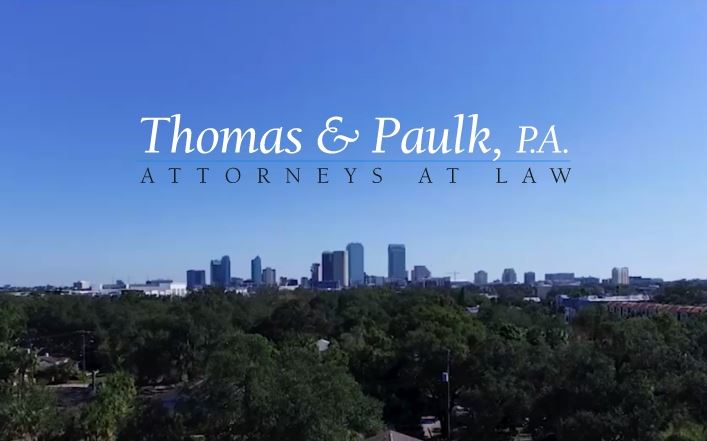
DUI Checkpoints in Tampa, FL
Florida Sobriety Checkpoints & Roadblocks
At least once in every driver’s lifetime, they will come into contact with a DUI checkpoint. These sobriety roadblocks, placed at random points on main roads, screen drivers for drunk driving. Throughout just one of these checkpoints, many arrests are made for DUI based on field sobriety tests conducted.
In recent history, the legality of these checkpoints has been a subject of controversy. The dispute centers on the claim that these checkpoints constitute illegal search and seizures, a violation of the Fourth Amendment. To comply with the Constitution and still conduct these checkpoints, Florida law enforcement has implemented a “three-minute rule.” According to this “three-minute rule,” once a vehicle enters the designated checkpoint, it may not be detained for more than three minutes without probable cause.
The best way to increase your chances of a positive result is to act quickly. Contact Thomas & Paulk, P.A. today and learn more about how we can help you!
What to Expect During a DUI Checkpoint
At a DUI checkpoint, the officer will approach the vehicle to speak with the driver. They may ask questions about how much the driver has had to drink, where they’re coming from, and where they’re heading. This allows the officer to assess the sobriety of the driver. The officer will watch for signs like slurred speech, bloodshot eyes, and distracting behavior. The officer will also observe the car for signs or smells of alcohol or drugs.
The officer’s goal is to get a driver to admit to intoxication; however, regardless of whether the driver has been drinking, they are protected by the Constitution. The Fifth Amendment protects citizens from being forced to self-incriminate. This means everyone has the right to remain silent. The Fourth Amendment applies to any requests by the officer to search the car. A person has the right to refuse an unwarranted search. However, keep in mind that the officer can use anything visible as evidence or to establish probable cause.
If the officer searches against the driver’s consent and without probable cause, they have violated that individual’s constitutional right. Any evidence gathered during that search should be deemed inadmissible in court. If the officer suspects that the driver is impaired by alcohol or drugs, they may ask them to step out of their vehicle and participate in tests used to identify intoxication. At this point, it is advised that drivers comply.
DUI Checkpoints vs. Saturation Patrols
During a DUI checkpoint, law enforcement officers evaluate drivers for signs of impairment. With DUI checkpoints, the officers stop vehicles in a specific sequence. Usually, the frequency of which vehicles are stopped depends on the ability of the department to staff a checkpoint.
Saturation patrols refer to increased law enforcement efforts in a specific area. While these are not concentrated checkpoints, saturation patrols can last for weeks and involve increased patrolling in a specific area. Saturation patrols are common around the holidays. If you notice more people getting pulled over than usual, you might be in the middle of a saturation patrol.
No-Refusal DUI Checkpoints in Tampa
No-refusal checkpoints are a recent and aggressive form of checkpoint in the Tampa area. Authorities created this program because of concerns that drunk drivers were evading punishment by refusing breath tests when stopped for suspected drunk driving. At a no-refusal DUI checkpoint, an on-site judge creates warrants on the spot for drivers who refuse a breath test. Opponents to this policy worry that no refusal checkpoints make judges appear as though they are not impartial to a driver’s case.
Tips for Going Through a DUI Checkpoint
If you see a DUI checkpoint, do not try to turn around or drive the other way. Officers in police units are standing by and will follow any drivers attempting to flee a DUI checkpoint. Instead, comply respectfully with the checkpoint. This communicates to the officer that you are not afraid of them.
If your evening involves enjoying alcohol, make plans to get home safely. This is the best guarantee against a DUI arrest. If you have been drinking and come upon a sobriety checkpoint, it is still recommended that you comply — a refusal to take a test can make your penalties worse. After being accused of drunk driving, hiring a Tampa DUI attorney is the best way to fight for your rights, interests, and freedom.
If you have been arrested at a DUI checkpoint, call (813) 221-4200. Our Tampa DUI defense lawyers are ready to use their experience to help you fight for reduced penalties, case dismissal, or acquittal.
DUI Checkpoint Arrest?
Coming across a DUI roadblock can be unsettling or downright frightening. If you were stopped and arrested at a checkpoint in the Tampa area, make sure you protect your rights. Involve an experienced legal team that has the skill to defend your interests and freedom.
-
We personally handle your defense strategy.
Our lawyers have been helping people just like you defend their future for decades.
View Results -
We always put our clients' cases and needs first.
Read our reviews to see what it is like working with our Tampa criminal defense law firm.
See Success Stories -
We're ready to hear your side of the story.
Tell us what happened to you during a completely free and confidential consultation.
Contact Us



